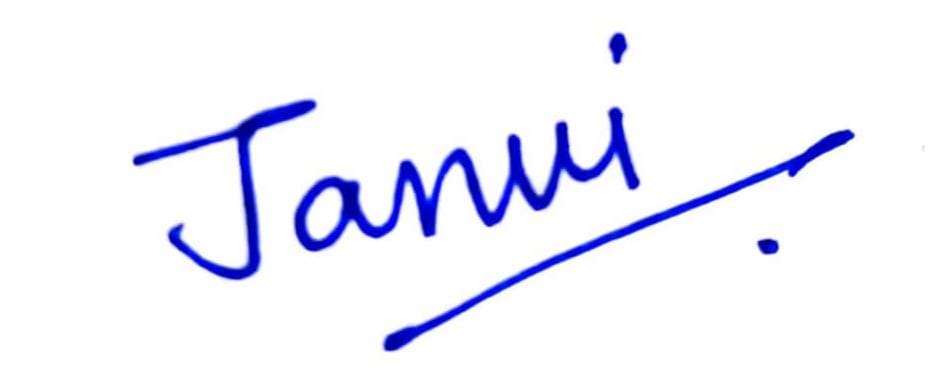Q1. Write the name of books written by Rousseau.
Q2. Critically examine Rousseau’s theory of Social Contract.
Q3. Discuss Rousseau’s views on General Will.
Q4. “Rousseau’s theory of Social Contract in Hobbes’s Leviathan with its head chopped off.” Discuss. (UPSC-1998)

Hey champs! you’re in the right place. I know how overwhelming exams can feel—books piling up, last-minute panic, and everything seems messy. I’ve been there too, coming from the same college and background as you, so I completely understand how stressful this time can be.
That’s why I joined Examopedia—to help solve the common problems students face and provide content that’s clear, reliable, and easy to understand. Here, you’ll find notes, examples, scholars, and free flashcards which are updated & revised to make your prep smoother and less stressful.
You’re not alone in this journey, and your feedback helps us improve every day at Examopedia.
Forever grateful ♥
Janvi Singhi

Give Your Feedback!!
Topic – Jean-Jacques Rousseau (Q&A)
Subject – Political Science
(Western Political Thought)
Jean-Jacques Rousseau was one of the most influential philosophers of the Enlightenment era. His ideas profoundly shaped political philosophy, education, literature, and social theory. Rousseau’s works span a variety of genres, including philosophical treatises, novels, autobiographical writings, and political essays. His writing was motivated by a concern for human freedom, morality, and the well-being of society, and he sought to explore the nature of man, society, and government. Over the course of his life, Rousseau produced several major works that continue to be studied for their intellectual depth and practical relevance.
Early Works and Philosophical Essays
Rousseau’s early contributions were in the form of essays that addressed human nature, morality, and society. One of his first notable works was “Discourse on the Sciences and Arts” (1750), also called the First Discourse, written for an Academy of Dijon competition. In this work, Rousseau argued that the advancement of the sciences and arts, contrary to popular belief, had corrupted human morals rather than improved them. He emphasized the value of natural simplicity, virtue, and authenticity, laying the groundwork for his later political and social theories.
Following this, Rousseau wrote the “Discourse on the Origin and Basis of Inequality Among Men” (1755), often referred to as the Second Discourse. In this essay, Rousseau explored the state of nature, human freedom, and the emergence of civil society. He introduced the concept of natural equality, contrasting it with the social inequalities created by property, wealth, and institutionalized hierarchies. The Second Discourse is crucial for understanding Rousseau’s later works, particularly The Social Contract, as it provides the philosophical foundation for his views on human nature, freedom, and morality.
The Social Contract
Arguably Rousseau’s most famous work is “The Social Contract” (1762). This book represents the culmination of his political thought and remains a cornerstone of modern political philosophy. In it, Rousseau examines how individuals can form a legitimate political community without sacrificing their freedom. He introduces the concept of the General Will, emphasizing that true political authority arises from the collective consent of the people rather than from coercive rulers. The Social Contract addresses sovereignty, lawmaking, and liberty, advocating a system in which individuals submit voluntarily to a social agreement for the common good. Rousseau’s assertion that “Man is born free, and everywhere he is in chains” captures the tension between individual freedom and societal constraints, highlighting the importance of laws derived from the General Will.
Emile, or On Education
Another major contribution of Rousseau is “Emile, or On Education” (1762), written around the same time as The Social Contract. This work is a treatise on education and child development, emphasizing the importance of natural growth, moral development, and individual autonomy. Rousseau critiques rigid educational systems that suppress freedom and creativity, advocating instead for a learner-centered approach that respects the child’s natural development. He emphasizes education not merely as the acquisition of knowledge but as a means to cultivate virtue, reason, and moral character. Emile is divided into stages of development, from infancy to adulthood, offering insights into psychology, pedagogy, and civic responsibility. This work also reflects Rousseau’s belief that education should prepare individuals to participate responsibly in society and align their personal goals with the general welfare.
Julie, or La Nouvelle Héloïse
Rousseau also made significant contributions to literature and sentimental novels, notably with “Julie, or La Nouvelle Héloïse” (1761). This epistolary novel explores love, morality, and social norms, emphasizing the tension between passion and duty. The novel became immensely popular across Europe and influenced Romantic literature, as Rousseau’s portrayal of emotions and moral reflection resonated deeply with readers. Through Julie, Rousseau explores how personal feelings and societal expectations interact, highlighting the importance of virtue, empathy, and moral conscience in human relationships.
Confessions
Rousseau’s “Confessions” (published posthumously in 1782) is considered the first modern autobiography. In this work, Rousseau recounts his life experiences, thoughts, and feelings with remarkable honesty and introspection. He discusses his childhood, relationships, struggles, and intellectual development, offering profound insights into human psychology and moral reasoning. Confessions is also notable for its self-reflective narrative style, where Rousseau attempts to present his life without concealment or embellishment, emphasizing authenticity and moral self-examination.
Reveries of the Solitary Walker
Towards the end of his life, Rousseau wrote “Reveries of the Solitary Walker” (posthumously, 1782). This work is philosophical and reflective, blending memoir, nature writing, and meditation. Rousseau reflects on solitude, the beauty of nature, and the contemplative life, expressing regret over societal alienation and the loss of innocence. The book highlights Rousseau’s belief that personal freedom and moral integrity are intertwined with harmony with nature and a simple, virtuous life. It also demonstrates his enduring commitment to self-examination, morality, and authenticity.
Other Works
Rousseau produced a number of other significant writings that contributed to philosophy, politics, and music. Among them is “Letters Written from the Mountain” (1764), which includes “Letter to d’Alembert” critiquing the moral consequences of theater and emphasizing public virtue and education. He also wrote on music theory, such as “Letter on French Music” (1753), reflecting his engagement with arts and culture as a means of moral and emotional expression. Each of these works, whether philosophical, literary, or musical, reflects Rousseau’s commitment to moral improvement, freedom, and societal welfare.
Contribution and Significance
Rousseau’s body of work collectively addresses the key questions of human nature, freedom, morality, and society. His political writings, especially The Social Contract, provide a normative framework for democracy and popular sovereignty, influencing the French Revolution and subsequent democratic thought worldwide. His educational theories in Emile revolutionized ideas about childhood and learning, advocating a holistic approach that balances intellectual, moral, and emotional development. Rousseau’s literary works, including Julie and Confessions, enriched European literature, emphasizing emotional depth, moral reflection, and authenticity.
Rousseau’s unique contribution lies in linking individual development and societal welfare, showing that personal freedom, virtue, and moral growth can only flourish in a society guided by laws reflecting the General Will. His vision of an ethical, participatory society has continued relevance, particularly in debates over citizenship, rights, education, and democracy. By producing works that span philosophy, literature, education, and politics, Rousseau created a comprehensive intellectual framework that addresses the complex interplay between the individual and society.
Conclusion
In summary, Jean-Jacques Rousseau authored several seminal works that continue to shape political philosophy, education, literature, and social theory. His major books include Discourse on the Sciences and Arts (1750), Discourse on Inequality (1755), The Social Contract (1762), Emile (1762), Julie, or La Nouvelle Héloïse (1761), Confessions (1782), and Reveries of the Solitary Walker (1782), alongside other essays and letters. Each of these works reflects Rousseau’s profound concern for freedom, morality, equality, and the human condition. Through his writings, Rousseau sought to reconcile individual liberty with social order, emphasizing the importance of moral education, civic virtue, and participatory governance. His intellectual legacy remains central to the study of modern political thought, educational theory, and literature, making him one of the most enduring and transformative thinkers of the Enlightenment era.
Western Political Thought Membership Required
You must be a Western Political Thought member to access this content.
